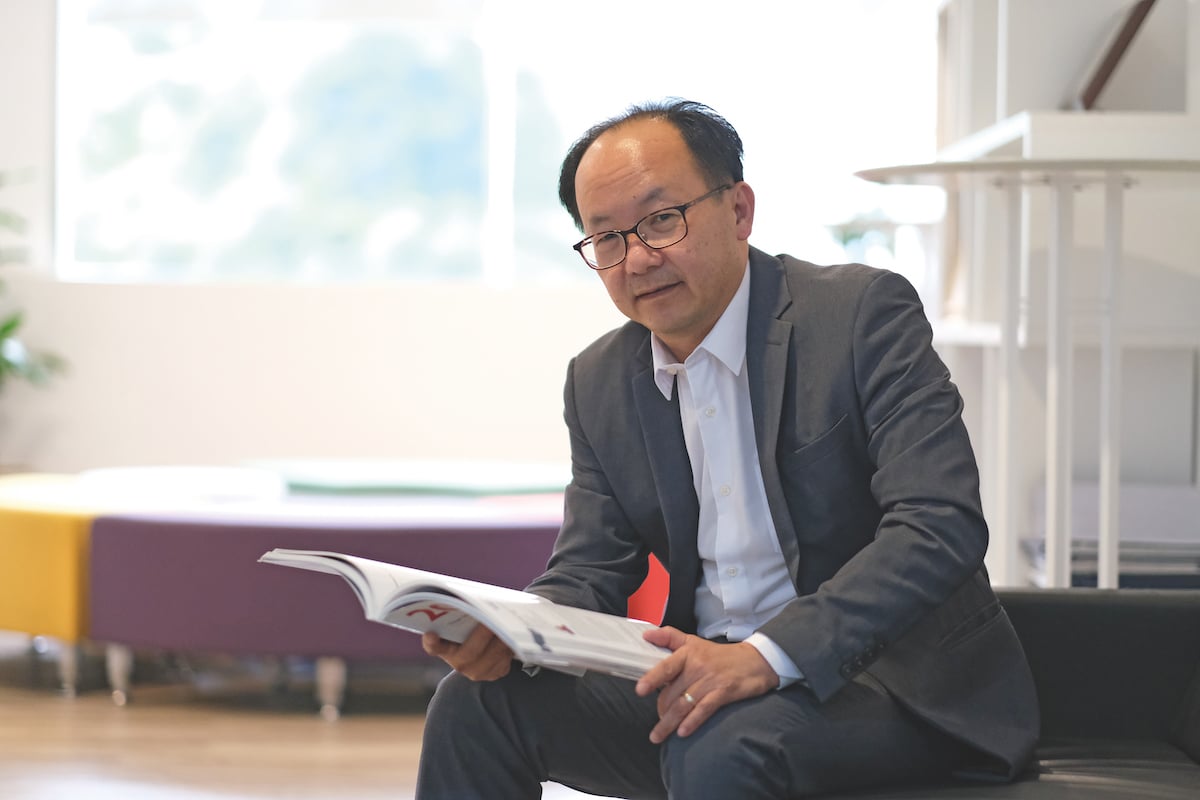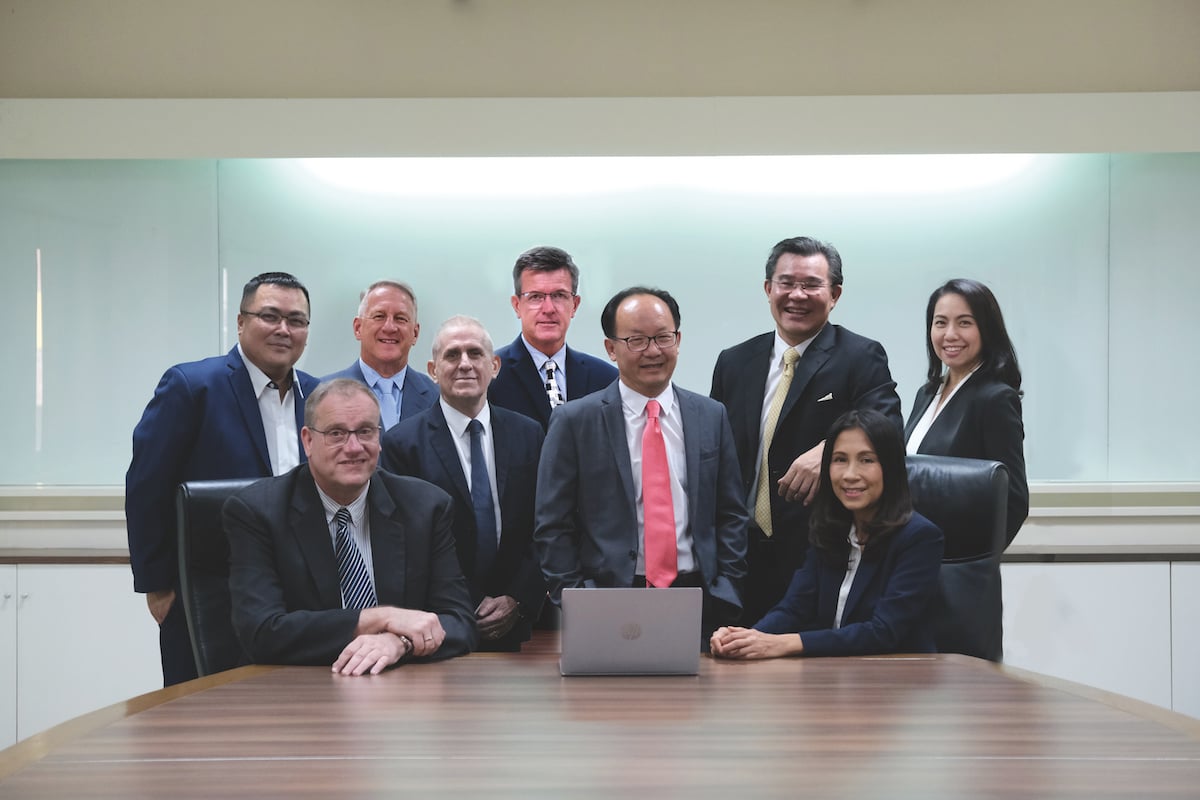For Worapong Padungkirtsakul and IFS Thailand, it’s been a roller-coaster two years. When he joined the company in 2018, it was as part of the global ISS Group, and he was drawn to the organisation because of the services it provided.

Just a few months after starting his new role, ISS announced that it would be divesting itself of some of its operations. Along with businesses in Brazil and Malaysia among others, it was decided that IFS Thailand no longer fit with its plans. “By that stage, I was already CEO of this company, and it was a real challenge because customers wanted to know what was going on,” Worapong recalls.
How was IFS planning to operate without the parent company ISS? “We had to assure people that it only meant a change of shareholders and that the company was still here,” Worapong says. “The employees are still working with you; the security guards, cleaners and receptionists at your sites are still the same. We had to deliver that sort of communication to our customers.”

And after having dealt with that immediate communication crisis, COVID-19 arrived. “That presented another challenge, and that’s been my journey for the past two years,” he adds. “But it’s been worth it.”
What doesn’t kill you…
“It’s been an interesting and exciting time to be able to go through that,” Worapong says. “It’s made us stronger as a company and stronger as a service provider. Our business has proven that we are resilient enough to withstand all these external pressures, and we have come out stronger than we were in 2018.”
Both in terms of the divestment and the COVID-19 outbreak, Worapong learned that clear and regular communication with employees and customers is vital in running a successful business.
“It was only three months after I joined ISS that I learned about the divestment, so it was quite a shock initially,” he recalls. “And our competitors saw it as a golden opportunity to tell our customers and potential customers that we were probably going out of business.
“Our business has proven that we are resilient enough to withstand all these external pressures, and we have come out stronger than we were in 2018.”
“So the communication had to be very effective, internally and externally. It had to be transparent first with our staff; every single staff member should know what’s going on. Once they were reassured, then they could talk to our customers. With over 1,000 customers, it couldn’t just be me or my senior management team talking to them. Even six or seven of us wouldn’t have been enough to handle everyone.”
Most of the customers understood and many saw it as an opportunity to have their services improved. Conversely, IFS saw it as a sign to make better communication an integral part of its strategy, which quickly proved vital in seeing the company through the worst of the pandemic.
“We invested in a digital platform to communicate with staff,” Worapong says. “We put up video clips, documents, and all sorts of things that our staff could learn from and read through.”
A brighter future
After negotiating those challenges, Worapong has now had some time to plan for the future with his team. Some things will change, but his goal remains the same.
“Our long-term strategy has never changed; we want to be a leading facilities management service provider,” he confirms. “We want to be known as an industry expert. It sounds very easy, but there’s a lot of work in becoming an industry expert. You need to understand what the customers’ needs are in different sectors. To be able to achieve that, you have to restructure yourself.”
The company has therefore gone about restructuring from a single-service structure to a multi-discipline, customer-centric structure that puts customers at the heart of everything. “At IFS we do not simply provide services, we find solutions that meet our clients’ needs and solve their problems,” Worapong says. “We integrate innovations and technology where possible to improve productivity and efficiency to help our clients meet their objectives.”
While the restructuring itself wasn’t actually that difficult, the acid test was whether staff could adapt. IFS ensured this through its commitment to retraining and upskilling its people. “One thing that we don’t cut corners on is training our staff,” he insists. “We send our staff to take courses, and we make sure that our managers have overall skills.”
IFS has also had to work closely with its customers to find better, cost-saving ways of providing all of its services, which has worked to strengthen those relationships.
“We put our customers at the centre of everything,” Worapong points out. “I know everyone will say that, but we don’t just think it; we act on it. When there is a new innovation, we work it out on a trial basis with our customers and then we put it into practice.”
Along with practical trials with customers to work on better efficiencies, Worapong reveals that IFS has also been consolidating its own suppliers, reducing the number it uses and doing deals on a bigger scale.
“That way we can both share a more long-term relationship with the same vision,” he explains. “For example, we are a company of 30,000 staff around the country, and everyone has about three sets of uniforms. In any given year, that’s a minimum of 90,000 sets of uniforms to order.
“We used to order a shirt and trousers from one supplier, then choose another and so on. Now we’ve been grouping it all and working with one selected partner. When you have scale, then you are able to do a lot more.”

And while IFS has left behind the scale of ISS, it is now well-positioned to build its own empire.
Proudly supported by:



